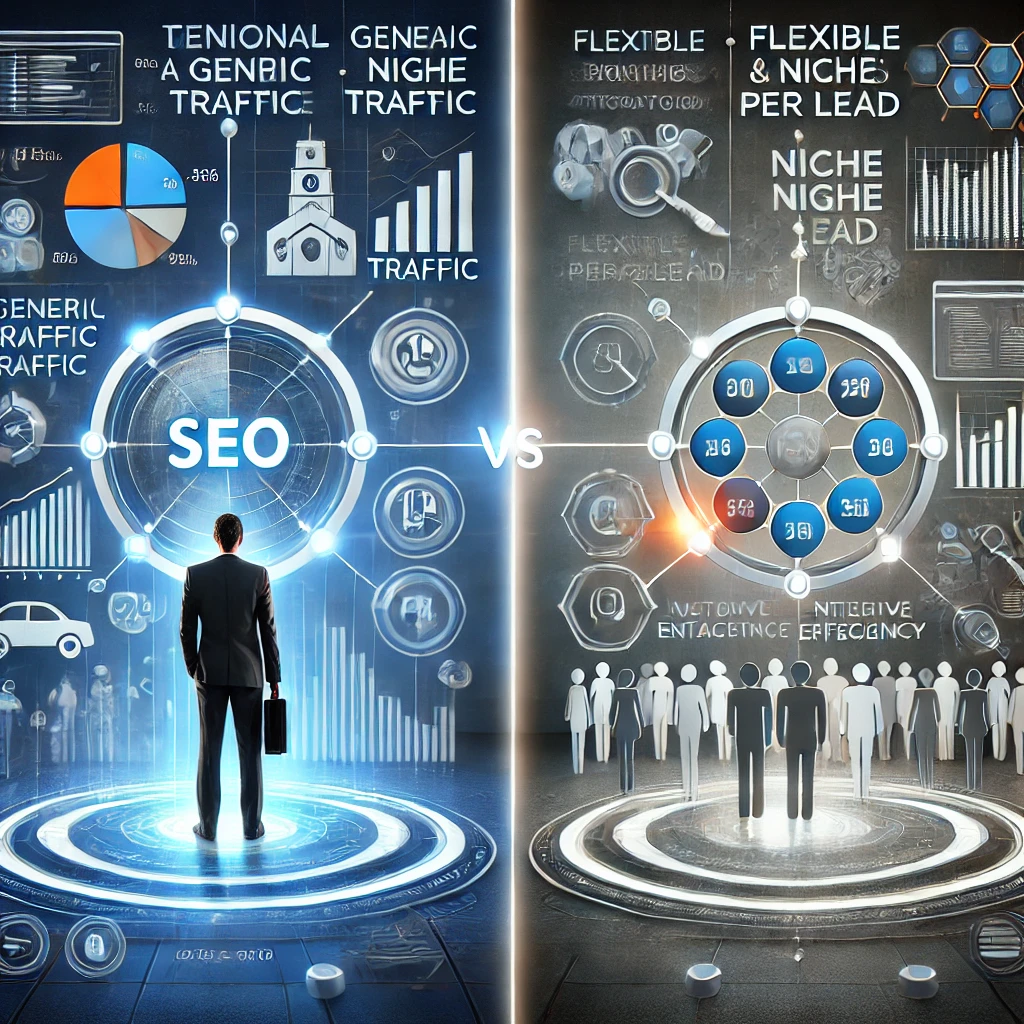The Future of SEO Is Not About Websites
Forget about blogs on platforms like Habr or VC. Modern SEO represents a paradigm shift—a new model of online promotion. What should business leaders understand to avoid wasting money and giving up halfway?
Topics We’ll Cover:
- Why SEO doesn’t work for 90% of companies.
- What SEO really is today.
- Key future trends in SEO.
- How to choose a strategy to ensure your promotion investments pay off.
Why Doesn’t SEO Work for Most Businesses?
Traditional SEO often looks like mysticism to tech-savvy individuals. Search engine algorithms constantly evolve, ranking logic is opaque, and search results are crowded with Google’s or Yandex’s own services. But the problem goes deeper than that.
Here’s how a standard SEO workflow typically unfolds:
- A business wants traffic and seeks help.
- SEO experts propose building or improving a website.
- The client pays for development, design, content, and optimization.
- The project is launched, but after six months, there are no sales.
- The business becomes disillusioned, abandons SEO, and reverts to traditional methods like print advertising.
The result? Money, time, and nerves are wasted. The website becomes a useless online banner with zero conversions.
Does this mean online promotion doesn’t work? Of course not! But only if you understand both business needs and audience behavior.

Common Pitfalls in SEO Campaigns
- Businesses fail to analyze where their target audience (TA) searches for products or services.
- Efforts are limited to creating a website that doesn’t deliver results.
- Strategies rely on outdated tools that are no longer effective.
Examples of SEO Failures:
- Firewood Dryer Manufacturer: The target audience—industrial businesses—but the site is optimized for keywords only hobbyists search for. Result: zero inquiries.
- Art and Souvenirs Shop: Focused on the website and PPC ads but saw no orders. However, sales soared when they posted photos on social media. Why? Their audience purchases impulsively via social platforms, not search engines.
- Suburban Aparthotel: The site was ineffective because search results were dominated by aggregators. Without a massive ad budget, direct traffic was impossible.
What Is SEO Today?
SEO (Search Engine Optimization) is no longer just about websites. It’s about being where users are searching: marketplaces, social media, and specialized platforms. Research shows that marketplaces now capture nearly 50% of product-related search queries.
In other words, SEO today is about optimizing your presence on platforms where users look for information. To make SEO effective, you must know where your audience is and how they search.
Key SEO Trends for the Next 5 Years
- Mobile-First Rules:
Smartphones generate over half of all web traffic. This demands content designed for mobile, including vertical images, easy-to-navigate tables, graphs, and videos. Traditional horizontal designs are becoming obsolete. - Detailed Page Structures:
For e-commerce and informational sites:
-
- Analyze top-ranking competitors.
- Create a more detailed site structure.
- Add filters, characteristics, and related LSI keywords.
- Comprehensive Content:
User queries are getting longer and more specific. The response? Deep content that addresses problems step by step. Include interactive elements like quizzes, polls, lead magnets, and chat features. - Branded Media and Thematic Blogs:
Large companies are adopting branded media formats, creating magazines, blogs, and content platforms. The key is to ensure content is useful and unique. - Emerging Niches:
Compete by targeting new or rapidly evolving niches. For example, education on marketplace promotion, where operating conditions change daily, offers strong growth potential.

Which Strategy Should You Choose?
Two Paths Forward:
- Traditional SEO: Capture 15-20% of traffic with conventional methods but pay more for each lead.
- Flexible Promotion: Build deep, niche-specific content. Add services, lead magnets, and engage your audience. This approach pays off within 1-2 years and lowers traffic costs over time.
Final Thoughts
The future of SEO isn’t just about websites. It’s about flexibility, adaptation, and deeply understanding your audience. Stay ahead by working at the intersection of trends, developing your platforms, and offering more value than your competitors. It’s a long-term, yet rewarding, journey.






I’ve been following your blog for a while now, and this post might be your best one yet!
Thank you for your feedback! It’s great to know the post made an impact.
Your writing is so clear and concise. I’m always excited when you publish something new.